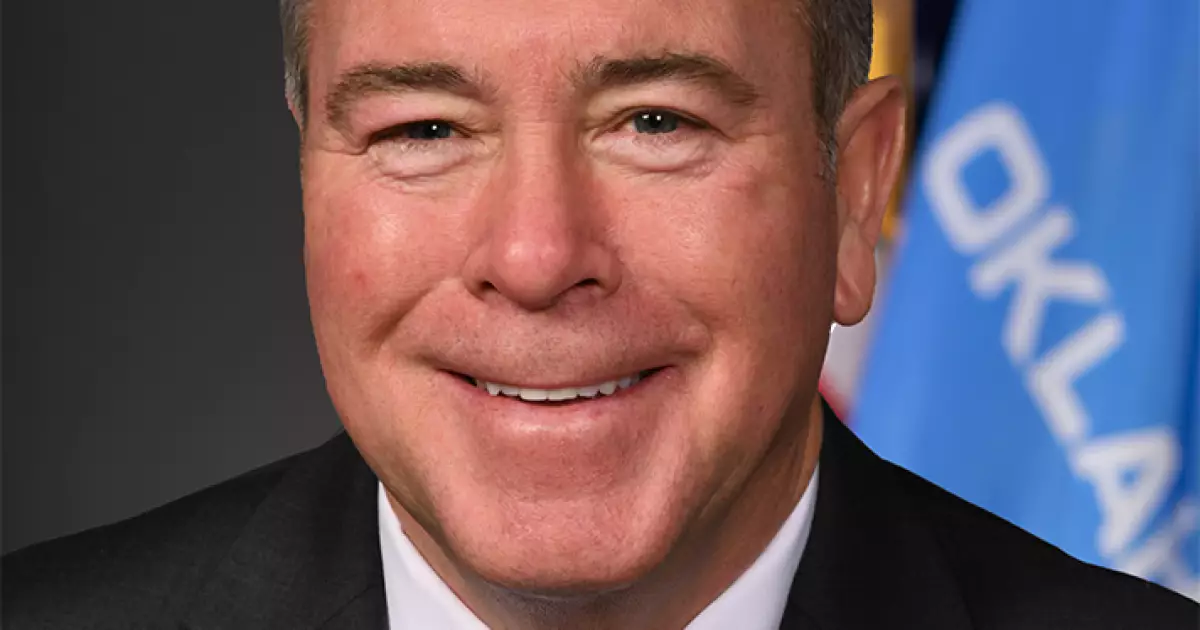Oklahoma Treasurer’s Office Faces Legal Scrutiny Over ESG Document Transparency

The Oklahoma Treasurer’s Office, led by Todd Russ, finds itself embroiled in legal controversy as allegations emerge of possible misconduct relating to the handling of documents tied to environmental, social, and governance (ESG) investment practices. A recent lawsuit filed by FOIA Professional Services, LLC, raises serious questions about the office’s compliance with open-records laws and its transparency in the application of the controversial Energy Discrimination Elimination Act of 2022.
The Controversy Surrounding ESG Practices
The crux of the matter lies in Oklahoma’s legislative response to ESG investment strategies, particularly concerning firms linked to fossil fuels. The Energy Discrimination Elimination Act prohibits the state from engaging in contracts valued at $100,000 or more with companies that the Treasurer’s Office deems to be “boycotting” the fossil fuel industry. This legislation has already faced significant judicial pushback; in July, an Oklahoma County District Court judge issued a permanent injunction against the law, suggesting serious constitutional concerns regarding its application and the implications for state investment practices.
This legal backdrop creates an environment ripe for scrutiny as the Treasurer’s Office undertakes the critical task of compiling a list of financial firms barred from state contracts. Notable institutions such as Barclays, BlackRock, and JPMorgan Chase found themselves on this restricted list, prompting backlash and significant operational repercussions. For instance, Wells Fargo withdrew as the lead underwriter for a major bond deal after landing on this blacklist, indicative of the far-reaching impact of the legislation.
The suit filed by FOIA Professional Services is particularly noteworthy. The firm specializes in managing public document requests under the Freedom of Information Act (FOIA) and took issue with the Treasurer’s Office, claiming it only partially complied with requests for documentation surrounding its ESG determinations. Specifically, the complaint addresses the withholding and potential destruction of documents that could shed light on the decision-making processes affecting the financial firms included in the restricted list.
One key aspect of the case involves communications sent to Jordan Harvey, the Deputy Treasurer and Chief of Staff, via her personal email. The lawsuit contends that such documents were either not produced or intentionally destroyed, especially those originating from outside parties engaged in discussions around ESG policies and practices. The ethereal nature of these communications raises red flags about the accountability of public officials when it comes to handling state business.
The lawsuit references specific emails containing discussions about ESG-related activities of major financial institutions. An email dated May 10, 2023—coinciding with Governor Kevin Stitt’s anticipated meeting with representatives from BlackRock—alleges that Harvey received briefing materials from “friends in DC.” The content of these emails appears significant; they include questions directed at BlackRock regarding its ESG stance and suggested rebuttals to potential counterarguments. These discussions could illuminate the rationale behind the decisions made by the Treasurer’s Office concerning its restrictions on certain financial entities.
Furthermore, subsequent communications allegedly cover a range of topics pertinent to ESG criteria and the implications of the Oklahoma State Pension Commission’s decisions. A memo analyzing OPERS’s vote to maintain investments with firms on the restricted list could signal underlying tensions within state financial governance and challenges faced by pension fund managers. This tension raises questions about fiduciary responsibility and the broader implications of anti-ESG legislation in the eyes of institutional investors.
Calls for Transparency
The lack of clarity surrounding the “friends in DC” emails—a term used to describe external advisors—leaves a significant gap in public knowledge. The Treasurer’s Office has not provided adequate explanations for the absence of these communications, creating concerns over potential obfuscation. As legal proceedings unfold, the need for transparency will be pivotal in restoring public trust.
A spokesperson from the Treasurer’s Office has reiterated their commitment to transparency and compliance, asserting that the office regularly collaborates with various organizations to fulfill document requests. However, the ongoing scrutiny suggests a pressing need for systemic change in how the office handles public information and engages with external stakeholders.
As this legal saga continues to unfold, the outcome may have lasting repercussions on how states confront and legislate ESG investment strategies. The allegations against the Oklahoma Treasurer’s Office reflect broader national debates about the role of state governments in influencing financial practices. Accountability in public office is paramount, particularly in matters governing fiscal responsibility and investment ethics. Thus, the judicial resolution of this case will likely contribute not only to Oklahoma’s legislative landscape but also serve as a critical case study for governance and transparency in the ever-evolving realm of ESG investing.





